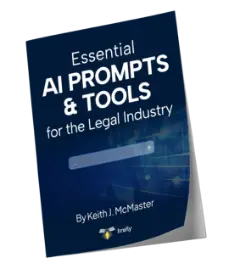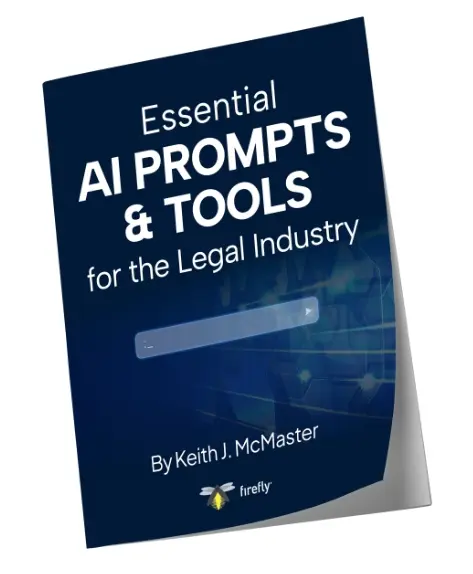Law firms and other organizations that hire a lot of process servers know how expensive it can be to work with high-quality servers. To get the job done right, you need someone who is knowledgeable, experienced, available—as well as someone who works within your budget. Process servers contribute to the foundation for a strong legal case, so you can’t cut corners without risking your legal standing.
AI is changing the legal industry from top to bottom, but it’s not just lawyers who are affected. Paralegals, court employees, administrative support staff, and process servers are all experiencing changes within the industry because of AI.
From document review to skip tracing, AI is changing the process serving industry. This naturally raises a lot of questions for firms that hire process servers. Is it possible to reduce the budget for these services thanks to AI? Will AI make hiring process servers less expensive? The answer isn’t exactly straightforward.

How AI might reduce process serving costs
AI, when used well, can make certain tasks more efficient. That’s true across multiple industries, including process serving.
For example, GPS tracking and route optimization software can help servers plan their days more strategically, while reducing travel time and saving on fuel costs. Here’s one way it could work: If a server uses a digital camera to document their service attempts, the timestamps can be a useful source of information. The server could ask AI to use that data to streamline documentation. Combined with a cloud-based system, the server can instantly upload proof of service. This is so much faster than an approach based on emails or paper documents.
Some networks of process servers are developing AI-powered address verification systems that can cross-reference multiple databases before a server heads out on an assignment. AI can conduct these searches much faster than an individual server, and it can also reduce the number of failed attempts.
Servers can take one of several different approaches to charging their clients, but fees are often based on:
- The named party’s location vs. the server’s location
- Complexity of service
- Required deadlines
- Types of documents
- Number of attempts required
- Additional services provided
- Local regulations
If AI can cut down on some of those tasks, then it makes sense that fees may be lower! However, when it comes to AI, nothing is simple or straightforward.
The human element remains irreplaceable
Process serving isn’t about simply delivering papers. It’s also about real-time problem solving and critical thinking. When a server arrives at an address and finds that it’s a vacant lot, or they realize that the named party works irregular hours, or they encounter another challenge to deliver papers in a timely manner, their human expertise is invaluable.
Some tasks can be sped up by AI, but that doesn’t mean that you can replace a human server with an algorithm or an LLM.
Experienced process servers know how to read complex situations and adapt to new challenges. They can think creatively about how to complete service efficiently—and legally. Human servers understand local laws and the implications of human behavior. An AI platform simply can’t replicate the intuition that comes from years of expeirence in the field.

AI is a tool for servers, not their replacement
The most realistic scenario is that AI will serve as a powerful tool rather than a replacement for process servers. Think of it like GPS navigation for delivery drivers—it makes the job easier and more efficient, but you still need skilled drivers who can handle unexpected situations.
Some of the things you may see AI do include:
- Optimizing routes across multiple service assignments
- Perform automated compliance checks on documentation
- Streamline communication between servers, firms, and clients
- Reduce time spent on administrative tasks
These improvements could lead to some cost savings, but they won’t eliminate the need for skilled professionals who understand the nuances of their work.
Process servers bring specialized knowledge that goes far beyond simply handing over documents to named parties. They understand service requirements that vary by jurisdiction, know how to handle substituted service when direct service isn’t possible, and can provide detailed affidavits that hold up in court.
When you’re dealing with high-stakes litigation, the difference between proper and improper service can make or break your case. An experienced server who charges slightly more but gets the job done right the first time often provides better value than a cheaper alternative that cuts corners.
An inexperienced server who tries to use AI instead of developing real knowledge about the work is going to create problems.
Smart ways to manage process serving costs
While AI might not dramatically reduce process serving fees, there are proven strategies for managing these expenses effectively. If you need to control costs, consider these methods.
Work with established networks of process servers
Partnering with a service like Firefly Legal gives you access to a vetted network of professional process servers across all jurisdictions. This eliminates the guesswork of finding reliable servers in unfamiliar areas and often results in better pricing through established relationships.
Bundle services strategically
If you have multiple documents to serve in the same geographic area, coordinating these efforts can reduce per-service costs. Many servers offer discounts for multiple services completed during the same trip.
Provide complete information upfront
The more accurate information you can provide about the recipient, including work schedules, alternate addresses, and physical descriptions, the higher the likelihood of successful first-attempt service. This reduces additional fees for multiple attempts.
Choose the right service level
Not every service requires rush delivery. Standard service timelines often cost significantly less than expedited options, so plan ahead whenever it’s possible.
Cut costs but don’t cut corners
Some firms attempt to reduce costs by working with inexperienced or unlicensed servers, but this approach often backfires. You can probably guess some of the reasons why! Servers who don’t know what they’re doing may fail to complete the job, fail to properly document service, behave inappropriately during the service, or become overwhelmed by the tasks associated with the work.
Improper service can invalidate your entire case, leading to costly delays and potential legal complications that far exceed any initial savings.
Professional process servers carry insurance, understand legal requirements, and provide documentation that courts will accept without question. The small premium you pay for quality service is essentially insurance for your case.

Turn to Firefly Legal when you need a process server
As technology continues to evolve, we’ll likely see gradual improvements in efficiency that may translate to modest cost savings. But the fundamental nature of process serving—requiring human judgment, local knowledge, and adaptability—means that dramatic price reductions through automation are unlikely.
The most successful approach today is to view technology as an enhancement to professional service rather than a replacement for it. At Firefly Legal, we can provide you with experienced servers who embrace helpful AI technologies while maintaining the high standards your cases deserve.
Smart legal professionals will focus less on finding the cheapest process server and more on building relationships with reliable professionals who deliver consistent results. In the long run, this approach protects your clients’ interests while providing better value for your legal practice.
Whether AI eventually reduces process serving costs or not, the fundamentals remain the same: quality service from experienced professionals is an investment in the success of your cases.
Contact Firefly Legal today for a free quote based on your unique needs.






